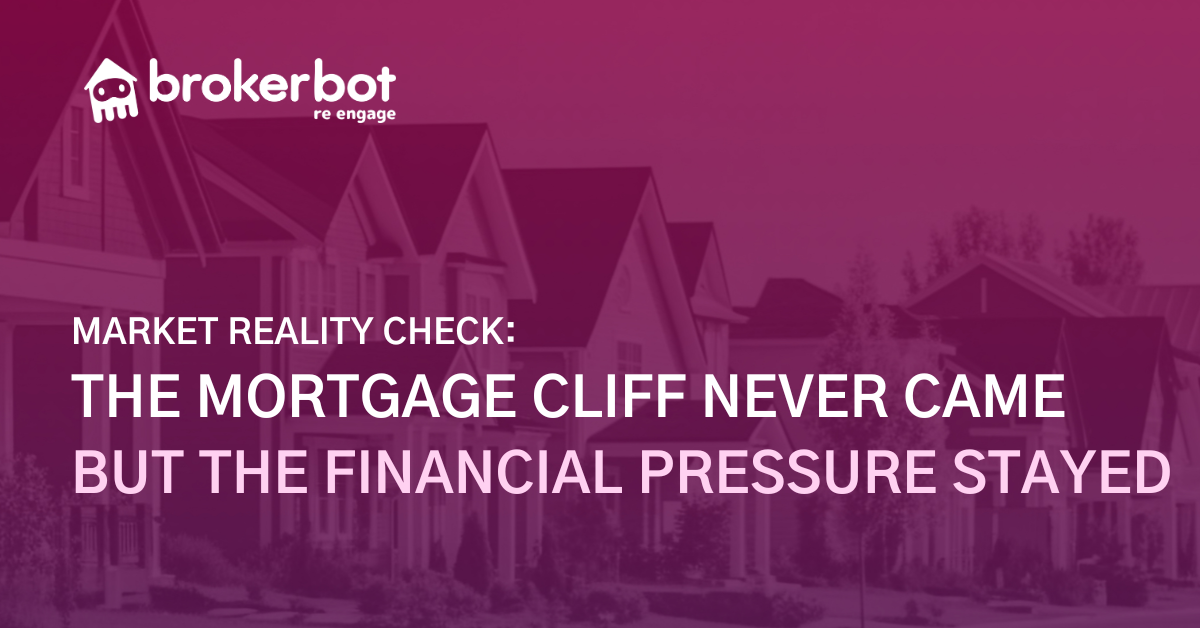Equitable Bank just told 160 employees to pack their desks. The market yawned. After all, layoffs are as Canadian as apologizing and overpriced housing. But if you're in mortgages or real estate and think this is just another bank doing bank things, you're dangerously asleep at the wheel.
EQB's restructuring (8% workforce reduction, $85 million in charges) isn't happening in a vacuum. It's happening because the wheels are coming off. In August, EQB posted earnings that missed analyst expectations by 16%. Their stock cratered 13% in one day, the worst drop since 2020. They're setting aside 60% more for bad loans than a year ago. And their Chief Risk Officer flat-out told investors that high rates and rising unemployment are causing mortgage defaults to spike, especially in the GTA where house prices are down 25-30%.
This Isn't an EQB Problem, It's a Sector Problem
Here's what should keep you up at night: EQB is far from alone.
Scotiabank announced fresh layoffs in October, adding to the 2,700 jobs they cut in 2023. TD is cutting 2% of its global workforce. RBC and CIBC are all increasing provisions for credit losses. In fact, Canada's big banks have collectively set aside over $4.5 billion to cover loans that might go bad. That's not pessimism; that's preparation.
Mortgage delinquencies have surged 64% since Q4 2022. The national rate is 0.23%, but it's 0.39% in the GTA, nearly double Vancouver's rate. Over one million fixed-rate mortgages renew in 2025, most locked in when rates were under 1%. These borrowers are about to face payment shocks of 30-60%. Some won't make it.
What This Means for Real Estate Professionals
When lenders get defensive, everything downstream slows down.
For brokers: Expect tighter underwriting, longer approval times, and more deals falling apart at the eleventh hour. Lenders who were flexible six months ago are now scrutinizing debt ratios like forensic accountants. Your job just got harder.
For agents: Listings are about to get messier. There will be more power-of-sale situations, more clients who need to sell because they can't afford renewals, and fewer qualified buyers because banks are tightening the screws. Volume will drop, and commission cheques will shrink.
For appraisers: Get ready for distressed property work. Power-of-sale assignments pay, but they're not exactly fun. And when banks write down equipment financing businesses (like EQB just did to the tune of $24 million), you know the commercial side is also feeling pain.
The Survivors Will Be the Ones Who Adapted Yesterday
A harsh truth is coming into focus: 2025-26 will separate the professionals from the order-takers.
You're in trouble if your business model relies on high transaction volume and lender flexibility. The brokers and agents who will thrive have already shifted gears—doubling down on client relationships, offering value beyond the transaction, and positioning themselves as trusted advisors rather than deal facilitators.
This means:
- Nurturing your book of business. Reach out to clients renewing in the next 12 months. Proactively help them stress-test their finances.
- Becoming a problem-solver, not a product-pusher. Clients need education right now, not just rate sheets.
- Building resilience. Diversify your lender relationships. Don't rely on two or three shops.
Don't Wait for the Pain to Arrive
EQB's restructuring is a symptom, not the disease. The disease is an over-leveraged housing market colliding with sustained high rates and a slowing economy. Lenders see it. They're preparing. The question is: are you?
Because when the dust settles, the professionals still standing will see this coming and adjust their approach before the market forces them to.

.png)



.png)
